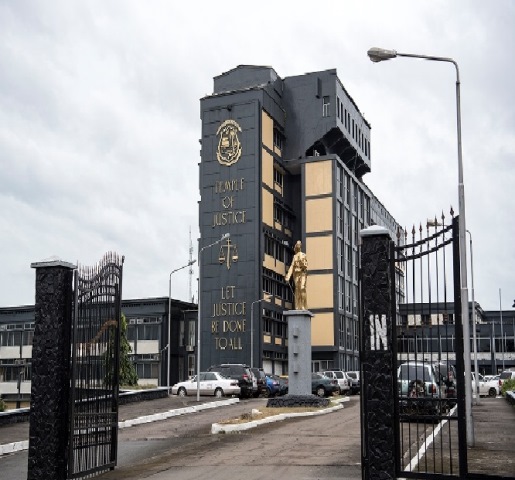The Liberian National Bar Association (LNBA) has sounded the alarm over recent developments that threaten the foundations of Liberia’s constitutional democracy. These concerns revolve around alleged infringements upon fundamental rights, questionable actions by the Executive branch, a disregard for judicial decisions, and instances of Legislative overreach. The LNBA views these actions as corrosive to the democratic fabric of the nation and pledges to engage with policymakers to ensure the upholding of the Constitution and the alignment of legal reforms with the aspirations of the Liberian people. Central to the LNBA’s concerns is the need for its own autonomy and independence. Currently operating under statutory guidelines that subject its regulatory, disciplinary, and administrative functions to external influences, the LNBA asserts the necessity of autonomous status to effectively fulfill its mandate. This autonomy would empower the Bar to independently establish and enforce ethical standards for legal practitioners, enhance licensing requirements, and administer disciplinary actions without undue external interference. The LNBA emphasizes the critical role of an independent Bar in upholding the rule of law, enabling it to challenge unconstitutional actions, advocate for judicial reforms, and engage in public interest litigation free from political pressures.
The recent controversy surrounding the removal of House Speaker J. Fonati Koffa highlights the urgency of the LNBA’s concerns. The events surrounding the Speaker’s removal brought the Supreme Court under public scrutiny and criticism, raising questions about adherence to constitutional procedures. The Supreme Court’s delayed and ultimately absent definitive opinion on the matter created ambiguity and allowed the Executive branch to interpret the situation in a manner that arguably circumvented established rules. This incident underscores the vital role of the Supreme Court in providing clarity and finality in legal matters, especially those with significant constitutional implications. The LNBA argues that the public’s trust in the judicial system hinges on the Supreme Court’s ability to provide clear and timely interpretations of the law, thus ensuring stability within the democratic system. The lack of a definitive ruling from the Supreme Court left the public in doubt and allowed the Executive branch, which was allegedly behind the Speaker’s removal, to effectively achieve its objective outside established procedures.
The LNBA emphasizes that the Supreme Court’s power of judicial review, enshrined in the 1986 Constitution, is paramount to ensuring a just and stable democratic system. The Court’s role in providing clear interpretations and definitive rulings is critical to preventing ambiguity and potential abuses of power. The incident involving Speaker Koffa’s removal demonstrates the dangers of judicial silence, as it can create a vacuum that allows other branches of government to act outside constitutional boundaries. This situation underscores the LNBA’s call for a more assertive and timely judicial review process, ensuring that the Supreme Court fulfills its constitutional mandate to uphold the rule of law. The LNBA’s commitment to collaborating with the Supreme Court to improve the quality and timeliness of its opinions is driven by the understanding that clarity and finality in judicial decisions are essential for safeguarding the best interests of law and public policy.
The LNBA’s concerns extend beyond the specific incident involving Speaker Koffa to encompass broader issues of constitutional adherence and the balance of power among the branches of government. The Bar’s emphasis on its own autonomy reflects a recognition that an independent legal profession is crucial for holding other branches of government accountable and ensuring the protection of fundamental rights. The LNBA’s call for greater independence is rooted in the belief that the Bar’s ability to challenge unconstitutional actions, advocate for judicial reforms, and engage in public interest litigation is essential for a functioning democracy. Without such independence, the LNBA argues, the legal profession’s ability to serve as a check on power and a guardian of rights is severely compromised.
The LNBA’s advocacy for a stronger and more independent judiciary is intertwined with its commitment to upholding the rule of law and protecting the integrity of Liberia’s constitutional democracy. The Bar’s expressed concerns highlight the potential for erosion of democratic principles when fundamental rights are violated, executive actions are questionable, judicial decisions are disregarded, and the legislature overreaches its authority. The LNBA’s pledge to engage with policymakers signals its commitment to address these concerns and work towards strengthening Liberia’s democratic institutions. By advocating for both its own autonomy and a more robust and independent judiciary, the LNBA aims to create a system of checks and balances that safeguards the rights of all Liberians and ensures that the government operates within the bounds of the Constitution.
The LNBA’s appeal for collaboration with the Supreme Court to improve the quality and timeliness of its opinions underscores the importance of a judiciary that is both independent and effective. The Bar’s emphasis on the Supreme Court’s power of judicial review highlights its critical role in providing legal clarity, resolving disputes, and ultimately safeguarding the rule of law. The LNBA’s concerns about recent events in Liberia, coupled with its proposals for strengthening the legal profession and the judiciary, reflect a deep commitment to ensuring that Liberia’s constitutional democracy remains vibrant and resilient. The LNBA’s proactive stance serves as a vital reminder of the ongoing need for vigilance and engagement in protecting and promoting the principles of democracy and the rule of law.


